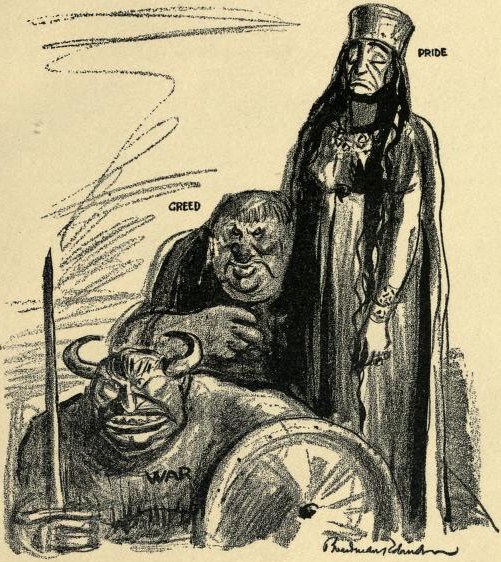|
Ang Paboritong Libro Ni Hudas
Ang Paboritong Libro ni Hudas (The Favorite Book of Judas) or ''The Black Book'' is a 2003 semi-biography book by Filipino author Bob Ong. It was his third published work and the first book where he first introduces ''fiction'' to his readers. Chapter Each chapter title is an anagram of the 7 deadly/capital sins: Each chapter tells a story, the theme of which is the deadly sin corresponding to its title. The book is also divided into two different types—first is fiction; the conversation scenes between the man who committed suicide and the other one, that he didn't recognize if it is God he was talking to, or if it is just Lucifer tricking him. The other one is nonfiction Nonfiction, or non-fiction, is any document or media content that attempts, in good faith, to provide information (and sometimes opinions) grounded only in facts and real life, rather than in imagination. Nonfiction is often associated with be ..., in which the narration of the author's point of ... [...More Info...] [...Related Items...] OR: [Wikipedia] [Google] [Baidu] |
Bob Ong
Bob Ong is the pseudonym of a contemporary Filipino author known for using conversational writing technique to create humorous and reflective depictions of Philippine life. The author's actual name and identity are unknown. Career Bob Ong pursued writing after dropping out of college. His pseudonym came about when the author was working as a web developer and a teacher, and he put up the ''Bobong Pinoy'' website in his spare time. The name roughly translates to "''Dumb Filipino''", used fondly as a pejorative term. "''Although impressed''", Bob Ong notes, "''my boss would've fired me had he known I was the one behind it.''" When someone contacted him after mistaking him as an actual person named Bob Ong, his famous pseudonym was born. The site received a People's Choice Philippine Web Award for Weird/Humor in 1998, but was taken down after former President Joseph "Erap" Estrada was ousted after the Second People Power Revolution. According to Nida Ramirez of Visprint, which ev ... [...More Info...] [...Related Items...] OR: [Wikipedia] [Google] [Baidu] |
Anger
Anger, also known as wrath or rage, is an intense emotional state involving a strong uncomfortable and non-cooperative response to a perceived provocation, hurt or threat. A person experiencing anger will often experience physical effects, such as increased heart rate, elevated blood pressure, and increased levels of adrenaline and noradrenaline. Some view anger as an emotion which triggers part of the fight or flight response. Anger becomes the predominant feeling behaviorally, cognitively, and physiologically when a person makes the conscious choice to take action to immediately stop the threatening behavior of another outside force. The English word originally comes from the term ''anger'' from the Old Norse language. Anger can have many physical and mental consequences. The external expression of anger can be found in facial expressions, body language, physiological responses, and at times public acts of aggression. Facial expressions can range from inward angling of the ... [...More Info...] [...Related Items...] OR: [Wikipedia] [Google] [Baidu] |
Nonfiction
Nonfiction, or non-fiction, is any document or media content that attempts, in good faith, to provide information (and sometimes opinions) grounded only in facts and real life, rather than in imagination. Nonfiction is often associated with being presented more objectively, like historical, scientific, or otherwise straightforward and accurate information, but sometimes, can be presented more subjectively, like sincerely held beliefs and thoughts on a real-world topic. One prominent usage of nonfiction is as one of the two fundamental divisions of narrative (storytelling)—often, specifically, prose writing—in contrast to narrative fiction, which is largely populated by imaginary characters and events, though sometimes ambiguous regarding its basis in reality. Some typical examples of nonfiction include diaries, biographies, news stories, documentary films, textbooks, travel books, recipes, and scientific journals. While specific claims in a nonfiction work may p ... [...More Info...] [...Related Items...] OR: [Wikipedia] [Google] [Baidu] |
Lucifer
Lucifer is one of various figures in folklore associated with the planet Venus. The entity's name was subsequently absorbed into Christianity as a name for the devil. Modern scholarship generally translates the term in the relevant Bible passage ( Isaiah 14:12), where the Greek Septuagint reads ὁ ἑωσφόρος ὁ πρωὶ, as "morning star" or "shining one" rather than as a proper noun, Lucifer, as found in the Latin Vulgate. As a name for the Devil in Christian theology, the more common meaning in English, "Lucifer" is the rendering of the Hebrew word he, הֵילֵל, hêlēl, label=none, (pronunciation: ''hay-lale'') in Isaiah given in the King James Version of the Bible. The translators of this version took the word from the Latin Vulgate, Originally published New York: The MacMillan Co., 1923. which translated by the Latin word (uncapitalized), meaning "the morning star", "the planet Venus", or, as an adjective, "light-bringing". As a name for the planet in its ... [...More Info...] [...Related Items...] OR: [Wikipedia] [Google] [Baidu] |
Fiction
Fiction is any creative work, chiefly any narrative work, portraying individuals, events, or places that are imaginary, or in ways that are imaginary. Fictional portrayals are thus inconsistent with history, fact, or plausibility. In a traditional narrow sense, "fiction" refers to written narratives in prose often referring specifically to novels, novellas, and short stories. More broadly, however, fiction encompasses imaginary narratives expressed in any medium, including not just writings but also live theatrical performances, films, television programs, radio dramas, comics, role-playing games, and video games. Definition Typically, the fictionality of a work is publicly marketed and so the audience expects the work to deviate in some ways from the real world rather than presenting, for instance, only factually accurate portrayals or characters who are actual people. Because fiction is generally understood to not fully adhere to the real world, the themes and conte ... [...More Info...] [...Related Items...] OR: [Wikipedia] [Google] [Baidu] |
Sloth
Sloths are a group of Neotropical xenarthran mammals constituting the suborder Folivora, including the extant arboreal tree sloths and extinct terrestrial ground sloths. Noted for their slowness of movement, tree sloths spend most of their lives hanging upside down in the trees of the tropical rainforests of South America and Central America. Sloths are considered to be most closely related to anteaters, together making up the xenarthran order Pilosa. There are six extant sloth species in two genera – '' Bradypus'' (three–toed sloths) and '' Choloepus'' (two–toed sloths). Despite this traditional naming, all sloths have three toes on each rear limb-- although two-toed sloths have only two digits on each forelimb. The two groups of sloths are from different, distantly related families, and are thought to have evolved their morphology via parallel evolution from terrestrial ancestors. Besides the extant species, many species of ground sloths ranging up to the size of ele ... [...More Info...] [...Related Items...] OR: [Wikipedia] [Google] [Baidu] |
Gluttony
Gluttony ( la, gula, derived from the Latin ''gluttire'' meaning "to gulp down or swallow") means over-indulgence and over-consumption of food, drink, or wealth items, particularly as status symbols. In Christianity, it is considered a sin if the excessive desire for food causes it to be withheld from the needy.Okholm, Dennis"Rx for Gluttony" ''Christianity Today'', Vol. 44, No. 10, September 11, 2000, p.62 Some Christian denominations consider gluttony one of the seven deadly sins. Etymology In Deut 21:20 and Proverbs 23:21, it is זלל. The Gesenius Entry (lower left word) has indications of "squandering" and "profligacy" (waste). In Matthew 11:19 and Luke 7:34, it is φαγος ("" transliterated character for character), The LSJ Entry is tiny, and only refers to one external source, Zenobius Paroemiographus 1.73. The word could mean merely "an eater", since φαγω means "eat" In religion Judaism Rambam, for example, prohibits excessive eating and drinking in ... [...More Info...] [...Related Items...] OR: [Wikipedia] [Google] [Baidu] |
Lust
Lust is a psychological force producing intense desire for something, or circumstance while already having a significant amount of the desired object. Lust can take any form such as the lust for sexuality (see libido), money, or power. It can take such mundane forms as the lust for food (see gluttony) as distinct from the need for food or lust for redolence, when one is lusting for a particular smell that brings back memories. It is similar to but distinguished from passion, in that passion propels individuals to achieve benevolent goals whilst lust does not. In religion Religions tend to draw a distinction between passion and lust by further categorizing lust as an immoral desire and passion as morally accepted. Lust is defined as immoral because its object or action of affection is improperly ordered according to natural law and/or the appetite for the particular object (eg sexual desire) is governing the person's will and intellect rather than the will and intellect gove ... [...More Info...] [...Related Items...] OR: [Wikipedia] [Google] [Baidu] |
Covetousness
Greed (or avarice) is an uncontrolled longing for increase in the acquisition or use of material gain (be it food, money, land, or animate/inanimate possessions); or social value, such as status, or power. Greed has been identified as undesirable throughout known human history because it creates behavior-conflict between personal and social goals. Nature of greed The initial motivation for (or purpose of) greed and actions associated with it may be the promotion of personal or family survival. It may at the same time be an intent to deny or obstruct competitors from potential means (for basic survival and comfort) or future opportunities; therefore being insidious or tyrannical and having a negative connotation. Alternately, the purpose could be defense or counteractive response to such obstructions being threatened by others. But regardless of purpose, ''greed'' intends to create an inequity of access or distribution to community wealth. Modern economic thought frequen ... [...More Info...] [...Related Items...] OR: [Wikipedia] [Google] [Baidu] |
Pride
Pride is defined by Merriam-Webster as "reasonable self-esteem" or "confidence and satisfaction in oneself". A healthy amount of pride is good, however, pride sometimes is used interchangeably with "conceit" or "arrogance" (among other words) which are negative. Oxford defines it as "the quality of having an excessively high opinion of oneself or one's own importance." This may be related to one's own abilities or achievements, positive characteristics of friends or family, or one's country. Richard Taylor defined pride as "the justified love of oneself", as opposed to false pride or narcissism. Similarly, St. Augustine defined it as "the love of one's own excellence", and Meher Baba called it "the specific feeling through which egoism manifests." Philosophers and social psychologists have noted that pride is a complex secondary emotion which requires the development of a sense of self and the mastery of relevant conceptual distinctions (e.g. that pride is distinct from happi ... [...More Info...] [...Related Items...] OR: [Wikipedia] [Google] [Baidu] |
Envy
Envy is an emotion which occurs when a person lacks another's quality, skill, achievement, or possession and either desires it or wishes that the other lacked it. Aristotle defined envy as pain at the sight of another's good fortune, stirred by "those who have what we ought to have". Bertrand Russell said that envy was one of the most potent causes of unhappiness. Recent research considered the conditions under which it occurs, how people deal with it, and whether it can inspire people to emulate those they envy. Types of envy Some languages, such as Dutch, distinguish between "benign envy" (''benijden'' in Dutch) and "malicious envy" (''afgunst''), pointing to the possibility that there are two subtypes of envy. Research shows that malicious envy is an unpleasant emotion that causes the envious person to want to bring down the better-off even at their own cost, while benign envy involves recognition of other's being better-off, but causes the person to aspire to be as good. ... [...More Info...] [...Related Items...] OR: [Wikipedia] [Google] [Baidu] |
Philippines
The Philippines (; fil, Pilipinas, links=no), officially the Republic of the Philippines ( fil, Republika ng Pilipinas, links=no), * bik, Republika kan Filipinas * ceb, Republika sa Pilipinas * cbk, República de Filipinas * hil, Republika sang Filipinas * ibg, Republika nat Filipinas * ilo, Republika ti Filipinas * ivv, Republika nu Filipinas * pam, Republika ning Filipinas * krj, Republika kang Pilipinas * mdh, Republika nu Pilipinas * mrw, Republika a Pilipinas * pag, Republika na Filipinas * xsb, Republika nin Pilipinas * sgd, Republika nan Pilipinas * tgl, Republika ng Pilipinas * tsg, Republika sin Pilipinas * war, Republika han Pilipinas * yka, Republika si Pilipinas In the recognized optional languages of the Philippines: * es, República de las Filipinas * ar, جمهورية الفلبين, Jumhūriyyat al-Filibbīn is an archipelagic country in Southeast Asia. It is situated in the western Pacific Ocean and consists of around 7,641 islands t ... [...More Info...] [...Related Items...] OR: [Wikipedia] [Google] [Baidu] |




.jpg)


